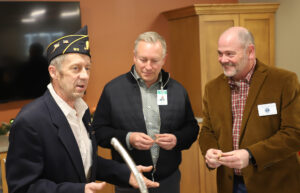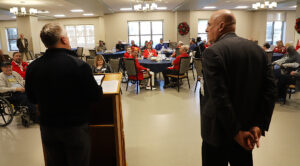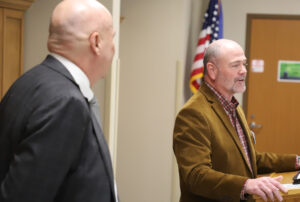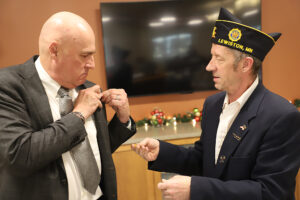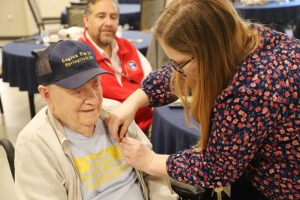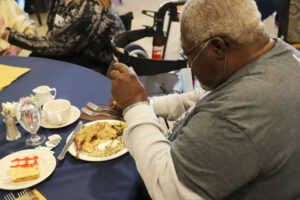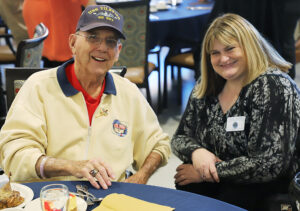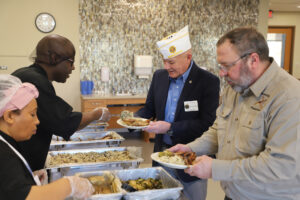American Legion provides 500-plus pheasants to veterans in the homes
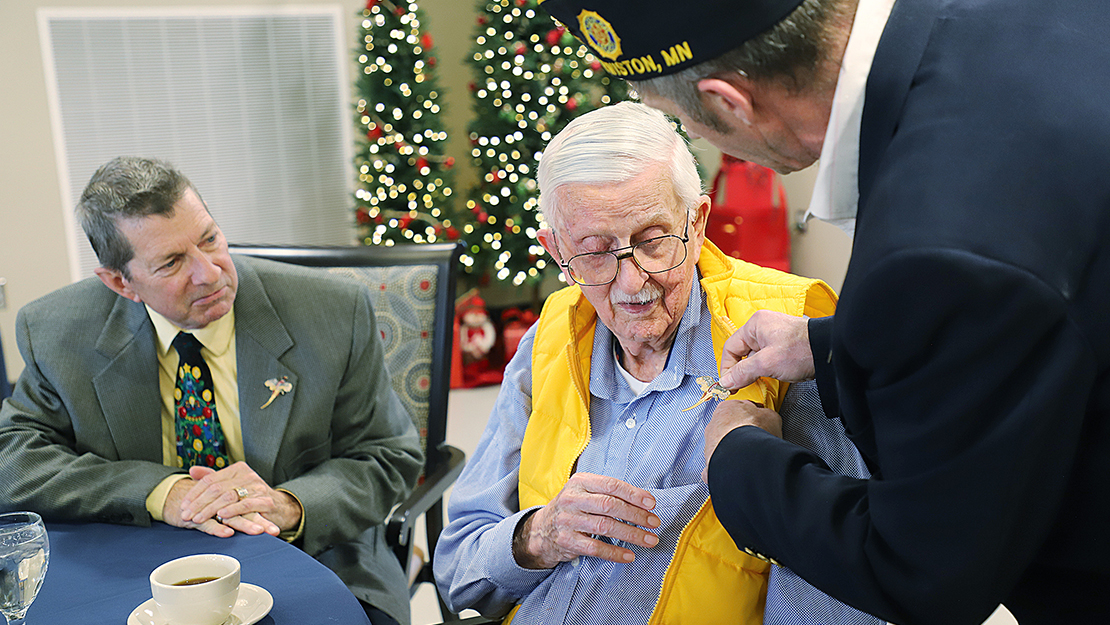
MINNEAPOLIS — Glenn Mueller of Lewiston Post 90 was appointed chairman of the American Legion Department of Minnesota Pheasant Feed Committee in 2019.
The committee provides pheasant dinners every December to veterans and guests at the five Minnesota Veterans Homes. This year is the 82nd year in a row of the Minnesota American Legion providing this specialty to the veterans in the homes.
Before the 1980s, the Legionnaires used to go hunting, and the pheasants collected were served up for lunch. After changes in U.S. Department of Agriculture regulations, the birds had to come from a company.
The prior chairman told him where the committee got the birds. It turned out that company was unable to provide them any longer in large numbers. They referred Mueller to some Indiana company. He had a dilemma to solve.
Mueller did an internet search to find where he could purchase frozen pheasants, and he stumbled across Oakwood Game Farm out of Princeton. The company sells fresh and smoked game birds. Yep, they could handle 400 frozen pheasants.
“They’ve been very good. They’ve kept their prices reasonable. It’s about $25 a bird. The Indiana company wanted $50 a bird,” Mueller said.
Its employees delivered the birds to the veterans homes, and the staff of the home prepared the pheasant dinners. The annual meal proceeded like it had for decades. All was well.
In the second year, the COVID pandemic hit, and Oakwood Game Farm could not deliver the birds. Neither could FedEx, UPS or any other delivery service. Mueller arrived with his Ford F-150, which had a topper, and he picked up all the frozen pheasants.
First, he drove to Minneapolis and dropped off that home’s share of birds. Then it was on to the State Security Hospital in St. Peter (just the veterans), then Hastings, then up north to Silver Bay.
That night, he stayed at his father-in-law’s place in Duluth on a Saturday night, and they moved the pheasants into a chest freezer so they didn’t thaw.
He returned to his home in St. Charles on Sunday, and on Monday, he delivered the remaining birds to the veterans homes in Luverne and Fergus Falls. Job done.
His third, fourth and how fifth years have been smooth sailing.
“They usually butcher them about two weeks before they send them out,” he said
A mix of resident veterans, staff, Legionnaires and Auxiliary members attended the dinner on Dec. 7 this year. Most of the residents were served the pheasant meal in their rooms.
“We served up 545 pheasants this year,” Mueller said. “We had 560 last year.”
The numbers were down in Luverne and Hastings, which brought the total statewide down.
The new Montevideo Veterans Home had its very first meal this year, and it ordered 20 birds. Preston and Bemidji will begin next December.
Minnesota Department of Veterans Affairs Deputy Commissioner Eric Meittunen, who leads the veterans homes, said veterans like to have a mission, a purpose, and 82 years of providing pheasant dinners is the fulfillment of that sense of purpose.
Interim Commissioner Brad Lindsay acknowledged the pheasant dinner fell on Pearl Harbor Day, and he acknowledged a World War II veteran in attendance.
Attendees also met the new administrator for the Minneapolis Veterans Home. It is Doug Britain. Most recently, he served as administrator for Lakehouse Healthcare and Rehabilitation Center (formerly Walker Methodist Health Center). He holds an MHA from the University of Minnesota and a bachelor’s degree in business administration from Union College. Both his father and brother are Army veterans.
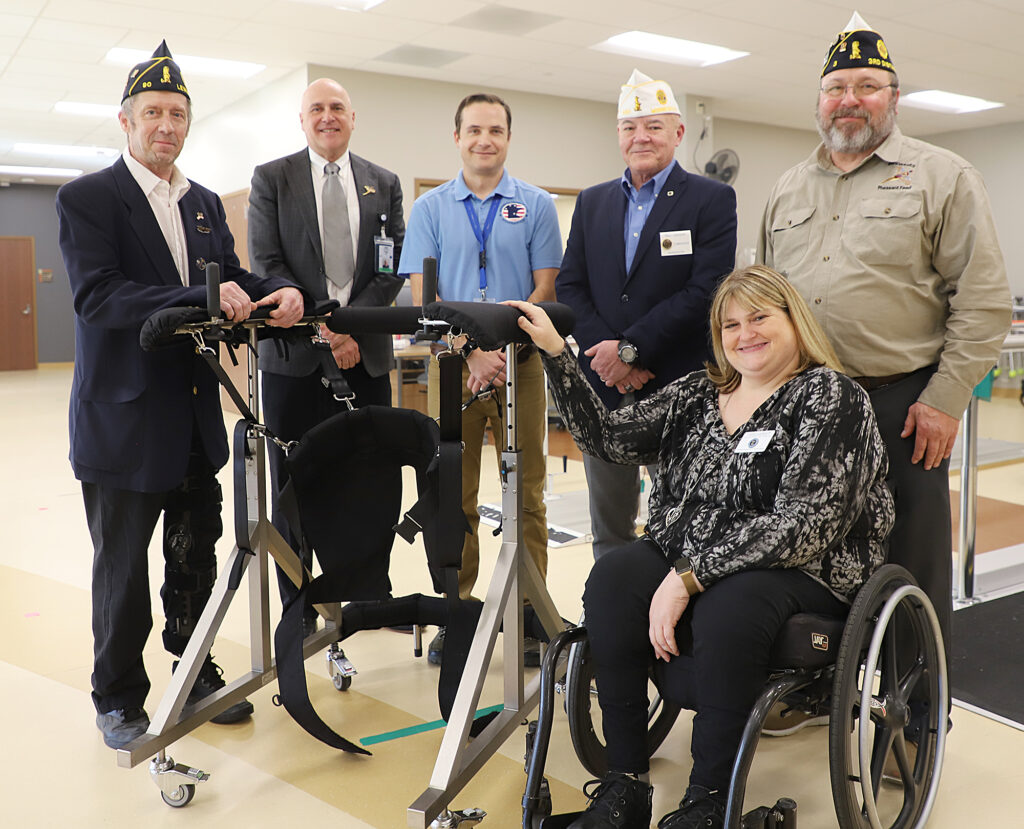
A new gait trainer
They also thanked the Pheasant Feed Committee for a $14,000 piece of equipment it purchased. It is a gait trainer from Second Step Inc.
Minneapolis Veterans Home Rehabilitation Therapy Director Derek Johnson said the old overhead gait trainer was cumbersome and uncomfortable. As a result, it didn’t get used much. It had a lot of moving parts that frequently needed replacing, so that also limited use.
This new one is light and easy-to-maneuver. If its user falls, they are fully supported. It is not hanging from above. It has strong welds and fewer parts.
“We don’t have to worry if they lose their balance,” Johnson said.
Mueller said he is proud the Pheasant Feed Committee is able to assist veterans with rehabilitation and thanked the MDVA for partnering for 82 years.
Mueller said the Pheasant Feed Committee is looking at ways to support the new homes, such as providing the seed money needed to fundraise for new motor vehicles.
To donate to the Pheasant Feed, click on this link, and it gives online or mail options. The Pheasant Feed is Fund 65 of the Minnesota American Legion Foundation.
Gallery



